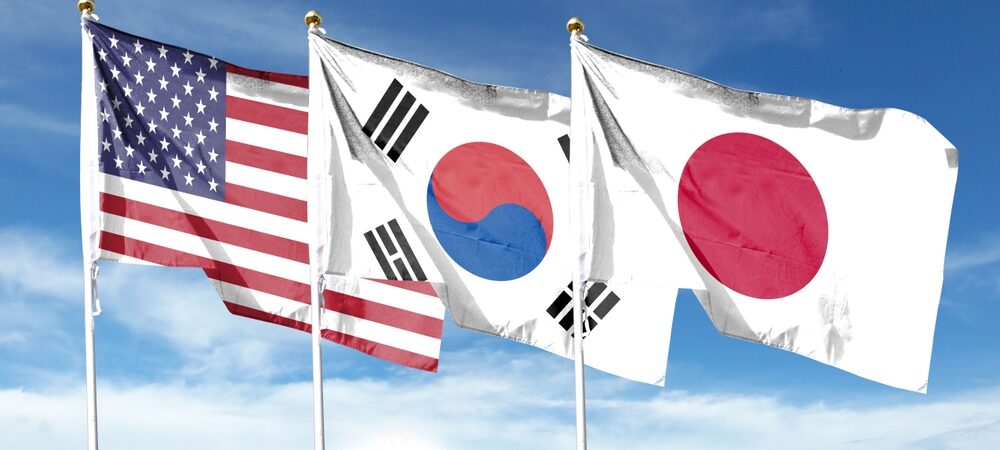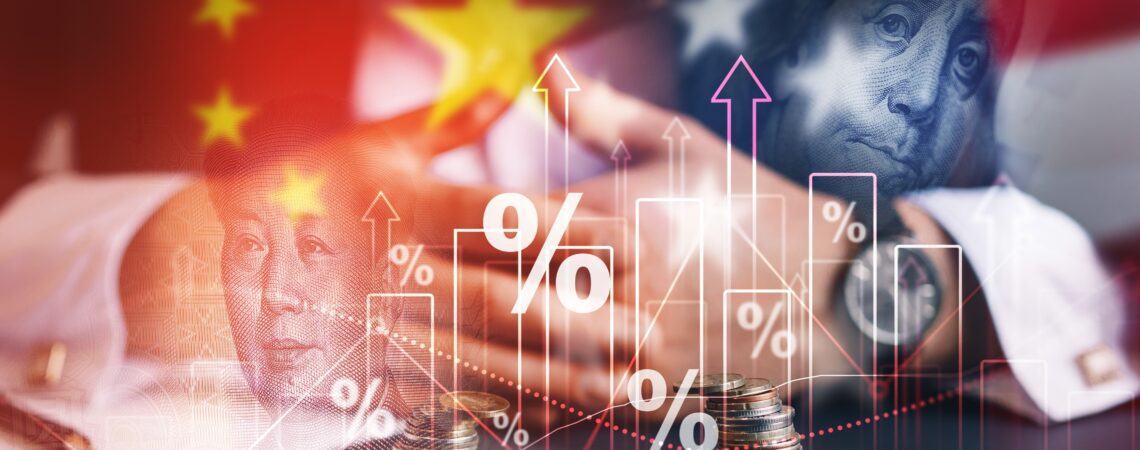WITA’s Friday Exchange Podcast: The Rocky Road to a Trade Deal with China – Tariffs, Rare Earths, Export Controls, and Miscalculations
On this week’s WITA’s Friday Exchange we dove into the tit-for-tat escalation in the trade tensions between the U.S and China that is dragging the whole world into the fight over foundational elements of the global economy. Our experts also discussed the potential for a Trump-Xi meeting, the APEC Summit, and the prospects for de-escalation.
Featured Speakers:
Introduction: Kenneth Levinson, CEO, WITA – the International Trade Membership Association
Wendy Cutler, Senior Vice President, Asia Society Policy Institute; former Acting Deputy U.S. Trade Representative, Office of the U.S. Trade Representative
Chris Padilla, Senior Advisor, Brunswick Group; former Under Secretary of Commerce for International Trade, U.S. Department of Commerce
Moderator: Joe Damond, Chair of International Trade Policy and Global Life Sciences, Crowell Global Advisors; former Deputy Assistant U.S. Trade Representative for Asia and Pacific, Office of the U.S. Trade Representative
Watch the Video on YouTube | Listen on Spotify or Apple Podcasts
Recorded at 9:00 AM ET on 10/17/2025 | WITA
Tariffs and Trump’s Immigration Crackdown Take A Toll on Wisconsin Farmers
President Donald Trump’s tariffs are becoming a major drain on Wisconsin’s agricultural economy. China stopped purchasing U.S. soybeans amid a new trade war this spring, triggering a price collapse and leaving farmers wondering what to do with the bumper crop they are now harvesting. Cranberry growers say they’re facing low prices and market uncertainty, too, as other countries turn away their products because of tariffs.
Small wonder the latest ag economy barometer published by Purdue University on Oct. 7 found that nationwide farmers say their economic condition is weakening. Despite expected record-high corn and soybean yields, farmers report they expect weaker financial performance in 2025 than in 2024 and have a weaker capital investment outlook.
Yet even as optimism about the farm economy is fading, support for Trump among farmers remains strong.
Back in March, 70% of farmers who answered the Purdue survey said they believed tariffs would strengthen the agricultural economy in the long run. That number dropped steeply to 51% by September. Still a large majority — 71% – continue to believe the country as a whole is moving in the right direction, and 80% believe the Trump administration is likely or very likely to give them an aid package to compensate for the damage done by tariffs and trade wars.
U.S. Rep. Tom Tiffany (R-Wisconsin) reinforced this hope on the WRDN radio podcast from the World Dairy Expo in Madison last week. Tiffany, who is running for governor, was asked what he says to farmers who are “fed up” with Trump’s tariffs. He replied that Trump tariffs are not going away, but, he said of the administration, “they’re gonna use some of that tariff revenue, which is significant, to help farmers out. Because they know, I mean, President Trump has no better friends than the farmers of America.”
Trump has suggested he will unveil another farm bailout as he did during his first administration, when China responded to steep tariffs by scaling back purchases of U.S. agricultural products.
10/09/2025 | Ruth Conniff | Wisconsin Examiner
Korea Needs Different US Trade Deal Than Japan
The Lee Jae Myung administration has put forward clear economic reasons why Korea needs a different trade arrangement with the United States than the one Japan accepted. However, if Korea is going to invest $350 billion in the United States, it should also push for the flexibility to take big bets on innovative projects rather than simply provide funds for the Trump administration to utilize.
Japan’s agreement with the United States has a few components. While there is a Consultation Committee that makes recommendations to the Investment Committee, only the Consultation Committee will have Japanese representation. The Investment Committee has no obligation to take the advice of the Consultation Committee, and ultimately the President of the United States is the one who is empowered to select the projects from the Investment Committee’s recommendations.
Japan has very few certainties under the agreement. It can decline projects, but then the United States can reimpose higher tariffs. The agreement also creates no legally binding rights, meaning that Japan has no certainty that the Trump administration will not impose new tariffs later for a different reason.
Because the Trump administration is pushing for cash up front rather than loans or credit guarantees, Korea’s agreement would draw the vast majority of the country’s reported $416 billion in foreign currency reserves. Without a currency swap arrangement, providing the United States with $350 billion up front in cash risks a sharp decline in the won and capital flight.
But there is a more fundamental reason why Korea should push for a different type of arrangement. Any tariff agreement should include the flexibility to let Korea invest in the most innovative and forward-looking projects possible.
Critical minerals are one potential area for growth. There is a consensus that the United States, Korea and other nations need to do more to develop secure critical mineral supply chains that aren’t dependent on China. Earlier this year, China restricted the export of seven critical minerals and rare earth magnets in response to U.S. tariffs.
10/09/2025 | Troy Stangarone | The Korea Times
Export Controls and U.S. Trade Policy: Making Sense of the New Terrain
Following is an excerpt:
There are steps the administration could take to better communicate and calibrate its new, broader approach to export controls while ensuring it does not inadvertently sacrifice national security priorities. This begins with articulating a strategy on the appropriate role of export controls, including clarity on what export controls are not up for negotiation. Such messaging is important for many audiences, but particularly for reengaging allies to encourage them to align their controls with those of the United States while assuring them that the only controls that will be relaxed are those on items where there is wide foreign availability. The Trump administration should also better articulate the threats posed by China’s economic, technological, and military model to reach shared risk assessments with allies and partners, to facilitate collective responses to common threats.
Additionally, if the administration wants to liberalize export controls to lower trade imbalances and as a carrot in trade negotiations, there are ways to do so without endangering U.S. national security. There are many legacy items that are controlled on the Commerce Control List, which at the time of their listing had national security implications, but which today, given advances in technologies and market shifts, may no longer warrant controls. Such items include, for example, legacy civil nuclear-related items and certain machine tools. The United States should review the Commerce Control List and identify items that have broad foreign availability, not only outside of China but inside of China and decontrol these items. This would help some U.S. companies that produce these legacy items export them to China and other markets, and allow the administration to highlight efforts to relax export controls without sacrificing national security.
Finally, the administration should review and reconsider the proposal of charging exporters to receive export licenses from the Commerce Department. If the administration does want to impose some fees for the processing of export control licenses, it should work with Congress to amend ECRA which could allow Commerce to publish a new fee structure in the regulations. Such a fee program itself need not be novel or controversial, and indeed the Department of State requires a registration fee of exporters to sell defense articles abroad. The revenue from fees could be used to improve the speed and scale of license issuance. But it is vital any such fee program be implemented in a transparent and proportionate manner, to avoid any perception that the United States is willing to sell export licenses that pose risks to U.S. national security if the price is right.
10/14/2025 | Geoffrey Gertz & Thomas Krueger | Just Security
WITA – We put the community in trade community.
Information about upcoming WITA and trade community events






